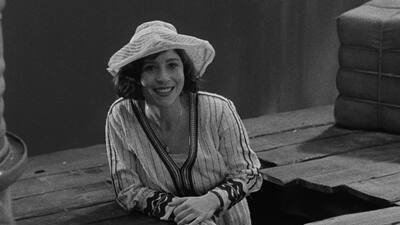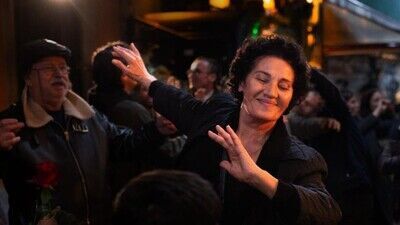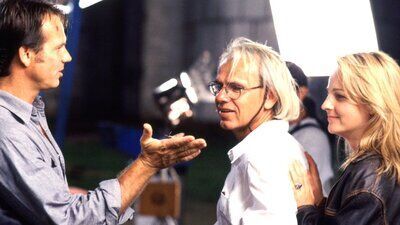There’s a warning up front for viewers sensitive to flashing imagery, but Aïnouz might also have provided a cautionary note about the palpable dampness and odors of the movie’s titular sex motel, even if you can’t technically feel or smell them. Iago Xavier plays Heraldo, the handy slab of beefcake who holes up at the seedy lodge, located in Ceará, Brazil. It’s run by Elias (Fábio Assunção), a soon-to-be-cuckolded slimeball who watches customers’ trysts through hidden cameras, and Dayana (Nataly Rocha), Elias’s hot-to-trot wife, who shows Heraldo the ropes of the place. Not a single one of the principals can act, and Aïnouz has a rather blunt sense of noir fatalism. (At the end, when someone asks Heraldo what happened, he responds, “I was born, that’s what.”) But getting your eyeballs scorched for two hours counts for something.

When the festival announced its selection, one of the bigger wild cards chosen for competition was “Beating Hearts,” directed by Gilles Lellouche, who is well-known as an actor in France and whose direction of the comedy “Sink or Swim” earned a César nomination. At the same time…Gilles who? And the running time is 166 minutes?
It turns out that “Beating Hearts” is an ambitious attempt at genre fusion, combining elements of a crime film, a star-crossed romance, and a musical. The first half, set in the 1980s, is a teen love story: Clotaire (Malik Frikah), who’s from the wrong side of the tracks, wins over the school’s straitlaced new girl, Jackie (Mallory Wanecque). Most of the film’s best sequences involve music, and when Clotaire impresses Jackie with his performance in a fight, suddenly everything falls away and the two share a dance number.
The couple’s love is incredibly pure—they’ve even got a mixtape labeled “C + J = [heart],” whose contents are mainly represented by Prince’s recording of “Nothing Compares 2 U.” They’ll be able to test that song’s thesis when, as the genre dictates, a violent incident tears them apart. After crosscutting between Jackie’s inability to concentrate on schoolwork and Clotaire’s struggles with the law, the movie fades to black, then rolls up—or at least cuts—to a club in the 1990s. Jackie is now played by Adèle Exarchopoulos. She also soon marries, which makes her prospects for getting back together with Clotaire (now embodied by François Civil) pretty dim.







Leave feedback about this